
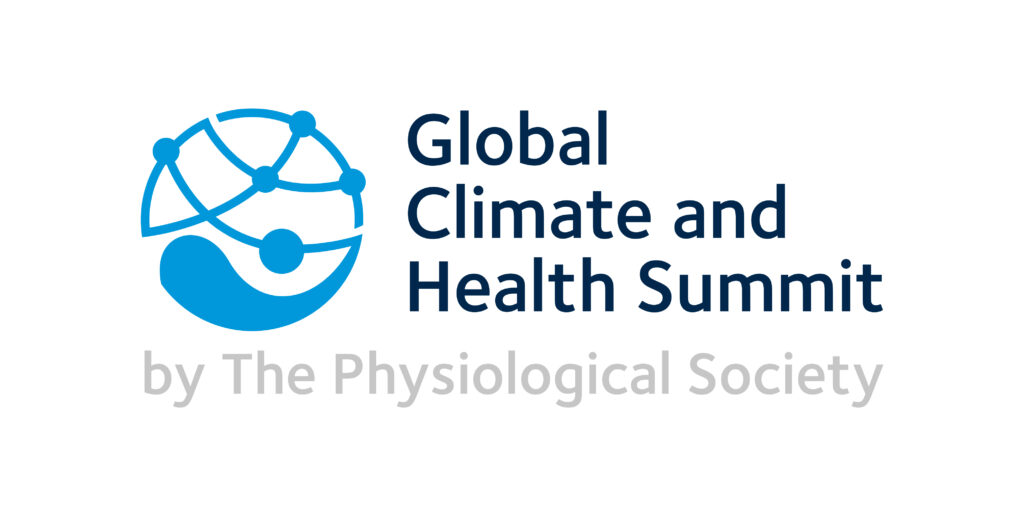
The Global Climate and Health Summit brought together world-leading experts to tackle the biggest health threat of our time: climate change. It connected science, policy, and lived experience to drive action on heat, air pollution, and nutrition. The Summit marked a turning point in turning evidence into solutions that protect both people and planet.
Read the reflections of Summit Chair, Professor Mike Tipton: Reflections from the Global Climate and Health Summit
This is just the beginning. What happens now?
We are asking everyone to do these three things:
- Sign the consensus statement.
Add your voice to our shared principles for urgent coordinated action.
How? Sign here. - Join the Climate and Physiological Resilience Network.
Stay connected with a global community at the intersection of science, health and policy.
How? Join here. - Participate in our Summit roundtables.
Build on the last two days to translate Summit insights into practical strategies for the Roadmap.
How? More info will be sent to Network members shortly.

The Global Climate and Health Summit took place 16-17 July 2025 at the QEII Centre in London and online. It brought together researchers, policymakers, and climate experts from around the world to address the urgent intersection of climate change and human health.
A call to action on climate and health
Climate change is the greatest health threat facing humanity – driving heat-related illness, worsening air pollution, and undermining global food security. The Summit aimed to catalyse action by creating a space for collaboration, knowledge exchange, and solution-building.
Through a dynamic programme of workshops, group sessions, and keynote talks, the Summit enabled participants to:
-
Shape the agenda – Drive policy-relevant action on heat, air pollution, and sustainable nutrition
-
Build global networks – Connect researchers, government, and civil society across disciplines and borders
-
Turn evidence into impact – Co-create strategies that protect health and the planet
The programme also prioritised the voices of people with lived experience of climate impacts, helping ensure solutions are inclusive and grounded in reality. The Summit is a key step in moving from research gaps to real-world change, especially for those most at risk.
The Summit was free to attend and supported by Wellcome.
Read our Guiding Principles Consensus Statement
If you would like to support our Summit’s statement, please fill in the form below.
Support our Global Climate and Health Summit 2025 Guiding Principles Consensus Statement
Members of our Global Climate and Health Summit Steering Group
Chair

Professor Mike Tipton MBE
Professor of Human & Applied Physiology, University of Portsmouth, UK;
President-elect, The Physiological Society
Vice Chairs

Dr Fortunate Machingura
Director, Climate, Environment & Health, CeSHHAR Zimbabwe;
Lecturer, Liverpool School of Tropical Medicine

Dr Anh Vu
Principal Investigator, £1.3million Wellcome Trust-funded project ‘The health impacts of climate change on precarious outdoor workers in urban Vietnam’;
Research Director, Climate Change Lead, National Centre for Social Research (UK)
Dr Otavio Ranzani
Assistant Professor, ISGlobal, Barcelona, Spain
Researcher, University of São Paulo, São Paulo, Brazil
Heat Resilience Theme

Professor W. Larry Kenney, Ph.D., FACSM, FAPS (Heat Resilience Theme Lead)
Marie Underhill Noll Chair in Human Performance;
Professor of Physiology and Kinesiology,102 Noll Laboratory, Penn State University

Professor Elizabeth Robinson
Professor of Environmental Economics, Department of Geography and Environment, and Acting Dean, Global School of Sustainability, London School of Economics and Political Science

Dr Shouro Dasgupta
Environmental Economist, Euro-Mediterranean Centre on Climate Change (CMCC);
Visiting Senior Fellow, Grantham Research Institute, LSE

Professor Ollie Jay
Professor of Heat and Health; Academic Director, Heat and Health Research Centre, University of Sydney

Dr Jessica Mee
UK Research and Innovation Future Leaders Fellow and Senior Lecturer in Female and Environmental Physiology, University of Worcester

Dr Hannah Pallubinsky
Dept. of Nutrition and Movement Sciences, NUTRIM Institute of Nutrition and Translational Research in Metabolism, Faculty of Health, Medicine and Life Sciences, Maastricht University, The Netherlands;
Healthy Living Spaces lab, Institute for Occupational, Social and Environmental Medicine, Medical Faculty, RWTH Aachen University, Germany

Dr Paul Coleman MPH, FFPH, UKPHR
Consultant in Public Health, Extreme Events & Health Protection, Centre for Climate & Health Security, UK Health Security Agency

Dr Josh Foster
Centre for Human and Applied Physiological Sciences, King’s College London

Professor George Havenith
Professor of Environmental Physiology and Ergonomics, Environmental Ergonomics Research Centre, Loughborough University
Air Pollution and Indoor Air Quality Theme

Professor Michael Koehle (Air Pollution Theme Lead)
Professor, Division of Sport & Exercise Medicine & School of Kinesiology, The University of British Columbia;
Adjunct Professor, Department of Biomedical Physiology & Kinesiology, Simon Fraser University

Dr Conor Reynolds P.Eng.
Director, Air Quality and Climate Action Services, Metro Vancouver

Dr Sarah Koch
Assistant Professor at University of Basel, Department for Sport, Exercise and Health, Switzerland;
Associated Researcher at Barcelona Institute for Global Health (ISGlobal), Barcelona Spain.

Dr Luisa Giles
Assistant Professor, University of the Fraser Valley
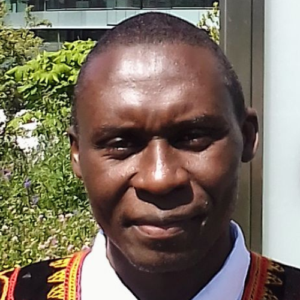
Elvis Ndikum Achiri
Co-Founder and President at Global Youth Strategy (GYS) on Air Pollution and Climate Health

Dr Ruaraidh Dobson
Head of Data Portfolio at the Clean Air Fund
Sustainable Nutrition Theme

Professor Paul Behrens (Sustainable Nutrition Theme Lead)
British Academy Global Professor, Oxford Martin School, University of Oxford
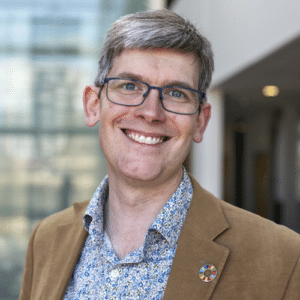
Dr Christian Reynolds
Reader in Food Policy, Centre for Food Policy, School of Health and Medical Sciences, City St George’s, University of London
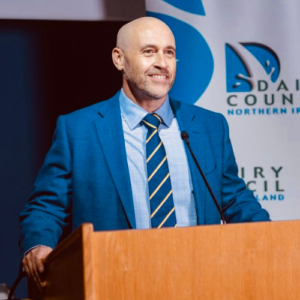
Professor Craig Sale, PhD, FACSM
Professor of Human Physiology and Nutrition. Deputy Director and Head of Research.
Institute of Sport, Research Lead for the Department of Sport and Exercise Sciences, Manchester Metropolitan University Institute of Sport, Manchester, UK.

Dr Oliver Witard
Reader in Nutrition and Exercise Metabolism
King’s College London

Dr Maria Traka
Head of Food & Nutrition-NBRI, Quadram Institute Bioscience
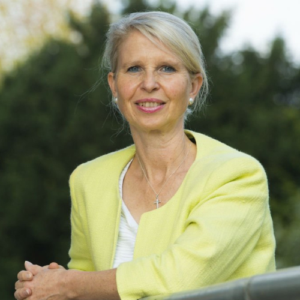
Professor Susan Lanham-New
Head of the Department of Nutritional Science, University of Surrey

Professor Kristie Ebi
Professor, Global Health, Professor, Env. and Occ. Health Sciences, Department of Global Health, University of Washington

Peter Res
Performance Nutritionist;
Consultant for the Dutch Olympic Team, NOC*NSF;
Climavore Athlete Movement
Cross-cutting Themes

Professor Hugh Montgomery OBE, FMedSci, MBBS, BSc, FRCP (Lond), FRCP (Ed), MD, FRSB, FFICM, FRI, FRGS
Professor of Intensive Care Medicine, University College London;
Co-chair, Lancet Countdown on Health and Climate Change; Director UCL Centre for Human Health and Performance’

Dr Jason Kai Wei LEE Ph.D., FACSM
Director, Heat Resilience and Performance Centre, Yong Loo Lin School of Medicine, National University of Singapore;
Chair, WHO-WMO GHHIN Southeast Asia Heat Health Hub

Dr Emma Lawrance
Climate Cares Centre Lead, Imperial College London

Dr Marina Romanello
Executive Director, The Lancet Countdown: Tracking Progress on Health and Climate Change

Mia Kett
Mia Kett, Senior Policy Adviser – Climate Change, The Royal Society
The Summit featured 3 core strands: heat resilience, air pollution and sustainable nutrition.
Strand overviews
Heat resilience
With rising global temperatures, heat stress is a growing threat to workers, productivity, and public health. This strand explored:
- Physiological thresholds for heat exposure and early intervention that are win-win for health and productivity
- Sustainable cooling solutions that do not worsen climate change
- Economic and workplace policies to protect vulnerable workers such as gig economy and indoor workers in LMICs
Air pollution & indoor air quality
Climate change is worsening air pollution, affecting respiratory and cardiovascular health. This strand explored:
- Climate-driven wildfires, heatwaves, and urban pollution impacting air quality
- Individual, community, and policy-level solutions for indoor air quality
- Equitable interventions to ensure clean air access for all
Sustainable nutrition
Food systems are a major driver of climate change but also a key opportunity for health and sustainability. This strand explored:
- The co-benefits of climate-friendly diets for human and planetary health
- Strategies to overcome economic and cultural barriers to dietary shifts
- Policy frameworks that align food security, public health, and climate goals

